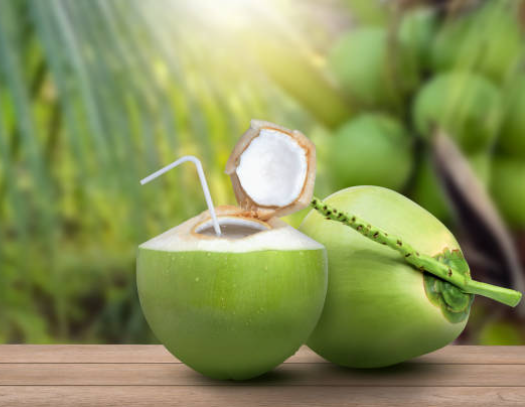Coconut water, the clear, refreshing liquid found inside young green coconuts, has become a popular health drink worldwide. Marketed as nature’s sports drink and a natural remedy for many ailments, its popularity is skyrocketing among fitness enthusiasts, health-conscious individuals, and even those simply looking for a hydrating alternative to sugary beverages. However, before you take your next sip, there are a few important facts you need to know.
1.Coconut Water is Not the Same as Coconut Milk
First and foremost, it’s crucial to understand that coconut water is different from coconut milk. Coconut water is the clear liquid inside green coconuts, while coconut milk is a thicker, creamy substance made from the grated meat of mature coconuts. Coconut water is low in fat and calories, whereas coconut milk is high in both.
2.Packed with Electrolytes, But Not Always Enough for Extreme Athletes
Coconut water is naturally rich in electrolytes such as potassium, magnesium, and sodium, making it a good option for rehydration after light to moderate exercise. However, for those engaging in high-intensity workouts or endurance sports, it may not provide enough sodium to replace what is lost through excessive sweating. In such cases, a sports drink formulated specifically for athletes may be more effective.
3.It’s Not a Cure-All
While coconut water boasts a range of nutrients, it’s not a miracle cure for every ailment. Claims that it can drastically lower blood pressure, cure kidney stones, or prevent major illnesses are often overstated. While it can contribute to a healthy diet, it’s important to pair it with other nutritious foods and an overall balanced lifestyle.
4.High in Potassium
Coconut water is an excellent source of potassium, with one cup providing around 600 milligrams—more than a medium banana. While this is beneficial for most people, those with kidney issues or who are on potassium-restricted diets should avoid consuming large amounts of coconut water, as excessive potassium can lead to hyperkalemia (high potassium levels in the blood), a potentially serious condition.
5.Be Wary of Added Sugars and Flavorings
Not all coconut water is created equal. Many packaged coconut water brands contain added sugars, artificial flavorings, or preservatives, which can negate the health benefits. Always check the label and opt for brands that offer 100% pure coconut water without additives.
6.May Not Be Ideal for People with Allergies
While rare, some people may experience allergic reactions to coconut water. This is especially true for those allergic to tree nuts, though coconuts are technically classified as fruits. If you’ve never tried coconut water before and have a history of allergies, consult with your doctor first.
7.Can Have a Laxative Effect
Coconut water has natural laxative properties. For some people, especially if consumed in large quantities, it may cause loose stools or upset stomach. If you’re new to coconut water, start with small amounts to see how your body reacts.
8.Hydration Hero for Hangovers
One of the less-discussed benefits of coconut water is its ability to rehydrate the body after a night of drinking. The electrolytes help replenish lost fluids and minerals, making it an excellent natural remedy for hangovers.
9.Quality Matters
Fresh coconut water from a green coconut is the best option for those who want to enjoy its full health benefits. Packaged varieties often undergo pasteurization, which can diminish some of its natural nutrients and flavor. If possible, choose fresh or minimally processed options.
10.May Help Lower Blood Pressure
The potassium in coconut water can help regulate blood pressure by balancing sodium levels and promoting heart health. However, if you are on blood pressure medications, consuming too much coconut water may amplify their effects, so consult your doctor if you’re unsure.
11.Not a Replacement for Water
While coconut water is hydrating and delicious, it shouldn’t replace plain water as your primary source of hydration. Coconut water contains calories and natural sugars, making it less ideal for all-day sipping compared to zero-calorie plain water.
12.Environmental and Ethical Concerns
The growing demand for coconut water has led to concerns about the environmental and ethical implications of large-scale coconut farming. Overharvesting can harm ecosystems, and low wages for coconut farmers in developing countries remain a pressing issue. When possible, choose brands that prioritize fair trade and sustainable farming practices.
Coconut water is undoubtedly a refreshing and nutrient-rich beverage with many benefits, but it’s essential to consume it mindfully and with an understanding of its limitations. Whether you’re drinking it for hydration, as a post-workout refreshment, or simply because you enjoy the taste, knowing these important facts will help you make informed decisions. Cheers to enjoying coconut water responsibly!






Add comment